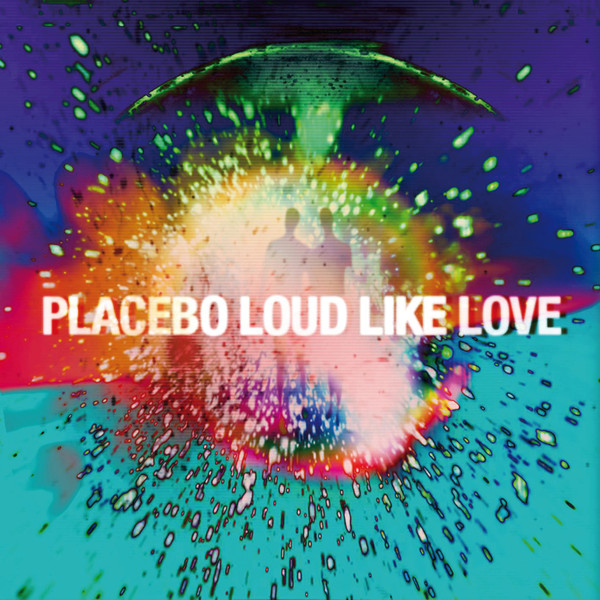“Can you imagine a love that is so proud / It never has to question why or how?” asks Placebo vocalist Brian Molko over glittery guitars during “Loud Like Love,” the upbeat opening and title track from the band’s new and seventh album. “We are loud like love / We are loud like love,” he proclaims over and over during the chorus. At the end of the song, he sings it several times with layers of cheerful backing vocals behind his ever-potent voice, driving home the song’s positive, anthemic message further still.
Although it’s not technically being advertised as a concept album, in many ways Loud Like Love could be viewed as a concept album about love and the many forms it takes.
“Scene of the Crime,” for example, would seem to be about putting yourself on display for someone you want to love you who is no longer doing so. “Give me a time, a place I should go / Reach inside, watch me grow,” Brian sings, apparently pleading his case. He’s at his sarcastic best when the song hits the bridge: “We almost made it, but making it was overrated.” I think he means that last bit in an ironic or just plain sarcastic way because the rest of the lyrics give one the impression that he thinks otherwise and does, in fact, still want to make it with the person he’s singing to. Musically, the song is slightly melancholic — especially during the parts that have piano — and it has that hopeless romantic vibe that many of Placebo’s best songs have.
During “Too Many Friends,” the band confronts how our society consists of so many people who have so many friends online but only online. Fed up with it, the protagonist throws his computer away. The chorus: “I got too many friends / Too many people that I’ll never meet / And I’ll never be there for / I’ll never be there for / ‘Cause I’ll never be there.” It might not be a ballad, but it’s an anthem for those of us who are loved online without anybody to love us in our “real” lives.
“Rob The Bank” is one of the heaviest songs on the album with its chugging bass line and persistent, sonorous drums, but it still concerns love, the protagonist basically telling his lover to rob the bank if they must but then to come home and “make love, make love, make love,” as the chorus goes, over and over. It’s easily one of the band’s most addictive, energetic tracks to date and it sounds like it could have been on Meds, which is easily my favorite Placebo album.
The beautiful piano ballad “Bosco” portrays the tale of two lovers, one of which, portrayed by Brian, is an alcoholic who treats the other poorly. “I love you more than any man / But something’s getting in the way,” he sings, his voice oozing despair. At least this alcoholic is brutally honest, as these lyrics from later in the song reveal: “I ask you for another second chance/ But then I drink it all away / And I get bellicose when you react / For love, frustration and dismay.” If you’ve ever loved an alcoholic, you may find it difficult to listen to this one. One of my late relatives was an alcoholic and it really struck a nerve with me.
Placebo has experimented with electronics several times over the years, but “Exit Wounds” may be their most electro-track thus far with programmed beats and assorted loops that sound like they could have been on Bjork’s Homogenic album fifteen years ago. The theme of love is present again here, this time the protagonist crying out loud over someone who’s left him for another. “Want you so bad I can taste it / But you’re nowhere to be found / I’ll take a drug to replace it / Or put me in the ground.” If “Loud Like Love” is Placebo’s most optimistic love song ever then surely “Exit Wounds” is their most depressing. And so you have an album concerning love that does so in many different ways, conveying a wide variety of situations and feelings that one can experience, each song coming off like it’s a journal entry from a different person. The ability to put themselves in other people’s shoes so readily, and to make it seem easy, is one of the band’s greatest gifts. In hip-hop it’s common for lyricists to put themselves into situations, delivering their observations in first person as though they’re living them even if they’re just relaying something they’ve heard about. That sort of first person storytelling is less common in rock and alternative music but it’s precisely the sort of thing that Placebo excels at and certainly one of the things that makes them stand out among their peers. But, of course, Molko’s distinctive voice and emotive vocals are another and he’s clearly on the top of his game here, making you feel happy one minute and kicked in the chest the next. That’s love for ya.


Leave a Reply